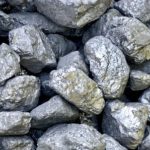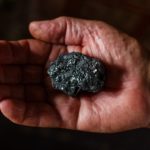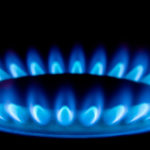Fossil fuels are used across the world for many applications from powering cars to lighting the bulbs inside our homes. But, do you know the advantages and disadvantages of fossil fuels? If not then, stick with us. Because, in this article, you will get in-depth information about the pros and cons of fossil fuels.
What is Fossil Fuel?
Fossil fuel is the fuel which is formed by the decomposition of plants and animals inside the surface of the earth. Usually, such decomposition is named anaerobic decomposition. Mainly there are three types of fossil fuels: coal, oil or petroleum, and natural gas. In 1597, Andreas Libavius proved that fossil fuels are formed by the fossilized remains of plants as well as animals deep inside the earth due to pressure and temperature.
As per recent statistics, 85% of the world’s population is using fossil fuels as their primary energy source. So, fossil fuels are playing an important role in our daily applications.
Now, let us have a closer look at the advantages as well as disadvantages of fossil fuels.

Advantages of Fossil Fuels:
Large storage:
As an energy source, we have been dependent on fossil fuels since last so many years. We have invested a lot of money, human power, and time in extracting fossil fuels and converting them into useful daily applications. As they are available everywhere across the world, we can say that they have a large abundance and they can be easily converted as well as used for our daily applications.
High Efficiency:
Fossil fuels have extremely high efficiency. That means that we can produce a large amount of energy from a small amount of fossil fuel. Due to this, we use petrol as the primary fuel for running vehicles. If you compare fossil fuels and other energy sources then, no other fuel source has an efficiency greater than fossil fuels. The extreme efficiency is the added advantage of using fossil fuels.
Easily Transportable:
Have you seen the transport of renewable sources of energy like sun, wind, etc.? Obviously, the answer is no. But fossil fuels can be easily transported from one part to the other part of the country via pipelines. We can transport oil, and natural gas through the pipelines. Also, setting up a fossil fuel power plant is also quite easy.
Create Employment:
Fossil fuel power plant generates employment in the local areas. So, many people who are located in the areas near the fossil fuel power plant gain an additional job or an income opportunity.
Also Read:
- Advantages and Disadvantages of Coal Energy
- Advantages and Disadvantages of Solar Energy
- Advantages and Disadvantages of Natural Gas
Disadvantages of Fossil Fuels:
Environmental pollution:
The most important drawback of fossil fuels is that they are very hazardous to the environment. Combustion of fossil fuels results in the production of air pollutants like sulphur dioxide, nitrogen dioxide, carbon dioxide, etc. All these gases are very hazardous and give rise to global warming.
Non-Renewable Energy Source:
Though fossil fuels are present in large amounts, they are non-renewable. So, once we use fossil fuels, we cannot regenerate them. In short, they are available in a limited amount. Hence, care should be taken to use them carefully and to find alternative energy sources which have the same efficiency as fossil fuels.
Harmful to Plants and Living Species:
Combustion of fossil fuels is harmful to living beings and plants. Air pollution after their combustion leads to diseases like cancer in human life. The health of the workers who are working at the coal mines is also in danger.
If you talk about the future of fossil fuels then, we can say only one thing if we don’t find alternative fuel sources to fossil fuels today then, we have to face serious problems. Drop a comment below if you have any questions.








